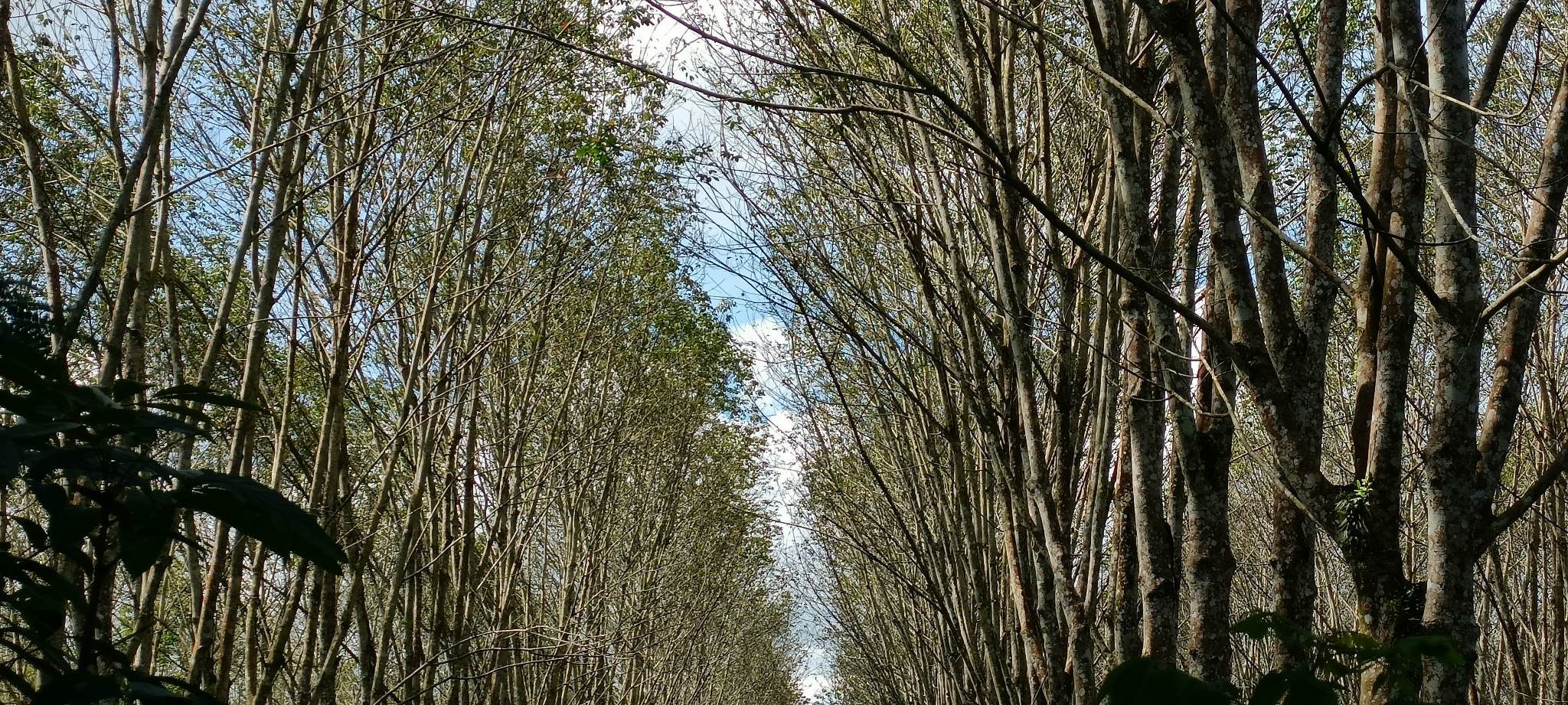SUMMARY
This is AI generated summarization, which may have errors. For context, always refer to the full article.

BASILAN, Philippines – The provincial government on Monday, January 23, declared the province under a state of calamity after a fungus that causes a disease with no known cure spread across nearly 1,000 hectares of rubber trees in the province.
The provincial board approved the declaration following a recommendation from the Provincial Disaster Risk Reduction Management Council (PDRRMC) which confirmed the spread of the leaf fall disease on Basilan’s rubber tree plantations.
The disease, also known as the Pestalotiopsis attack, has been a major threat to rubber tree plantations in Southeast Asia.
The disease causes leaves to turn yellow and fall off the tree and significant reductions in rubber yield.
The Basilan Provincial Agriculturist’s Office and the Philippine Rubber Research Institute said Pestalotiopsis has so far infected around 90%, if not all, of the rubber trees in the province’s nine municipalities and two cities.
Last week, Basilan Governor Jim Salliman-Hataman said at least 800 hectares of rubber trees in the province were infected.
Over Basilan broadcaster DXNO-Radyo Komunidad on Monday, Salliman said experts theorized that the disease may have spread to the province from nearby Sabah, a territory being disputed by the Philippines and Malaysia. He did not elaborate.
Salliman also directed local agriculturists to see if there was already a cure for the rubber tree disease that is caused by the fungus Pestalotiopsis.
The disease, which can infect rubber tree trunks and cause them to die in severe cases, has been difficult to control, and there is no known cure.
Initially, local officials said protocols need to be put in place in Basilan’s rubber tree plantations to prevent the disease from spreading further.
In other Southeast Asian countries, efforts are being made to combat the spread of the disease. These include the use of fungicides and the development of disease-resistant strains of rubber trees.
Some experts, however, said these measures may not be enough because of other factors such as climate change and monoculture farming practices.
Farmers in major rubber-producing countries like Thailand and Indonesia have reported increasing cases of the disease in recent years. – Rappler.com
Add a comment
How does this make you feel?















There are no comments yet. Add your comment to start the conversation.